
Creators & Engineers
-
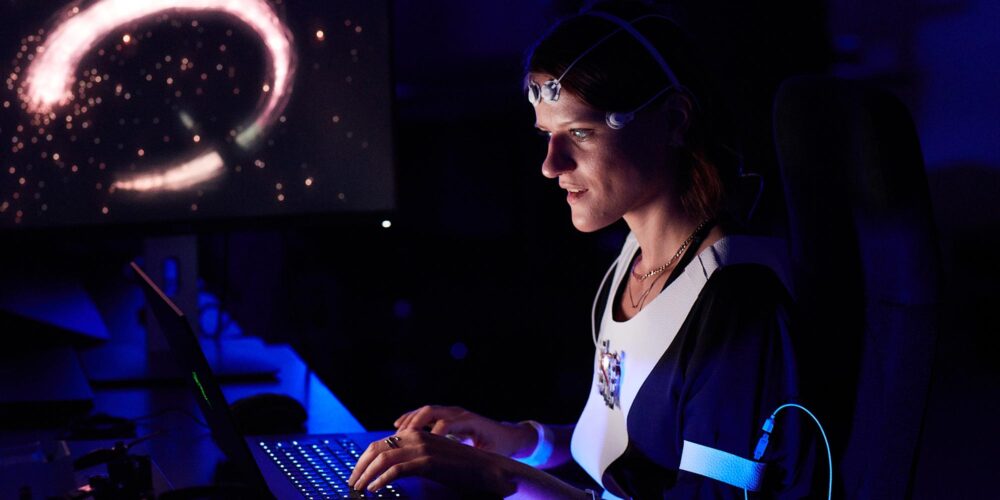
That’s why we are so fascinated by technology
We experiment, develop and tell stories with technology. The first part of Ars Electronica’s 2022 Year in Review shows how.
-
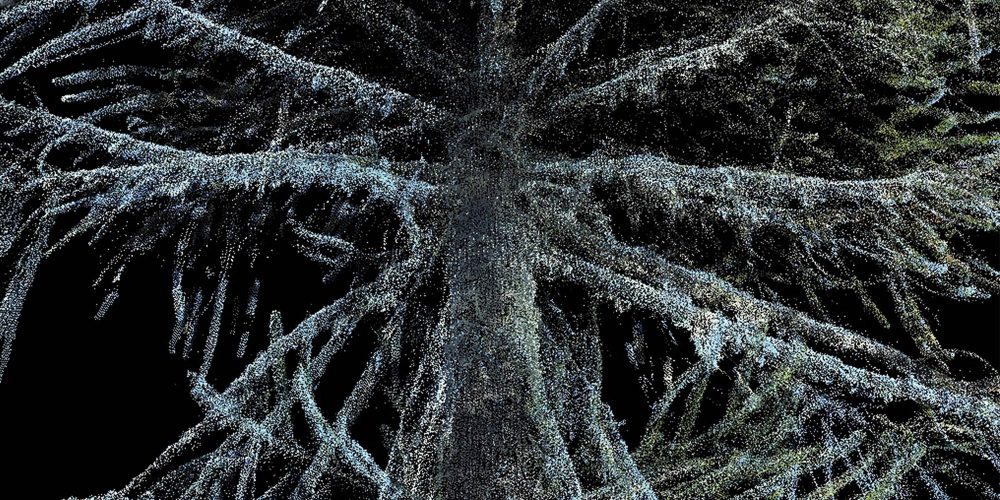
“The wheel is spinning again!”
A New Digital Deal – 2021 kicks off the beginning of the doing. A first preview of the Ars Electronica Festival.
-
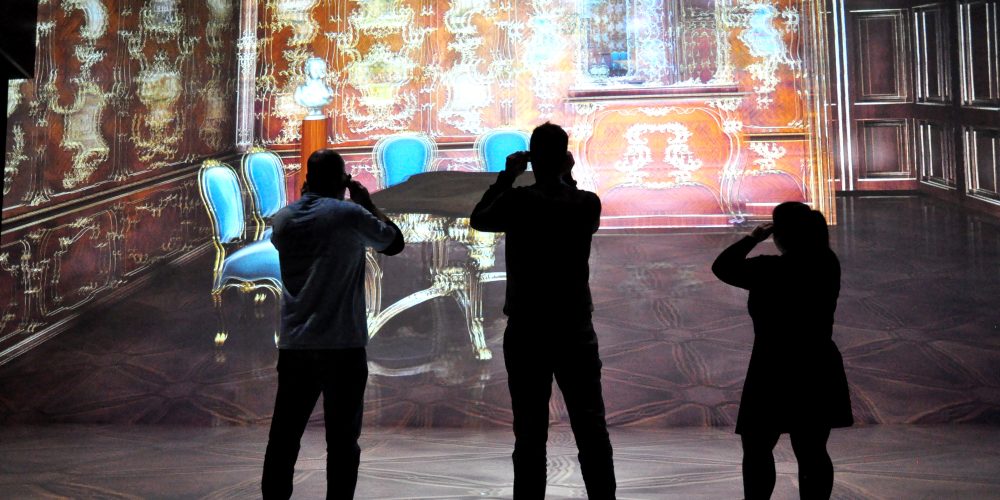
The Language of Virtual Realities
In a virtual world, we can simulate truths that would be unimaginable in real life, explore incredible activities, and collaborate with others in a way that goes beyond physical interaction.
-
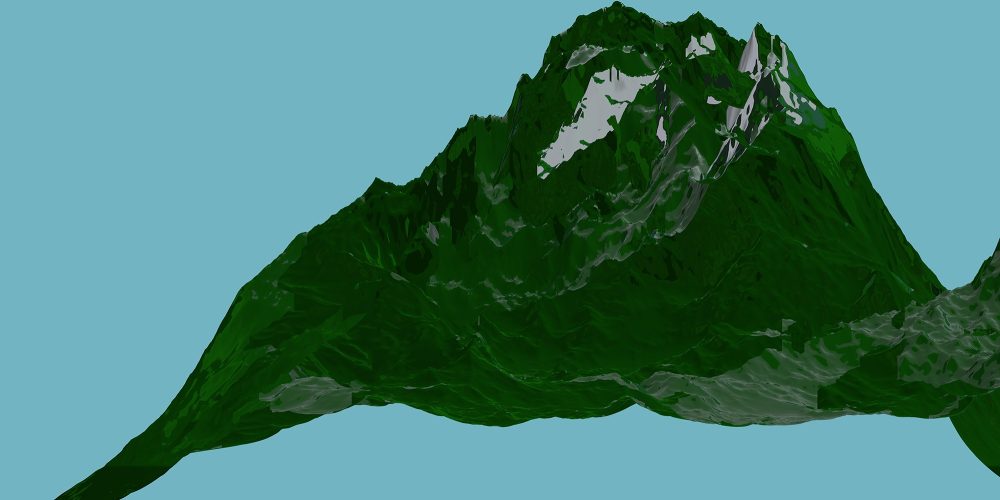
The Future Is Coded
Travel restrictions raise new challenges for cross-boundary artistic/scientific research. Residencies at the Ars Electronica Futurelab remain a source of mutual inspiration.
-
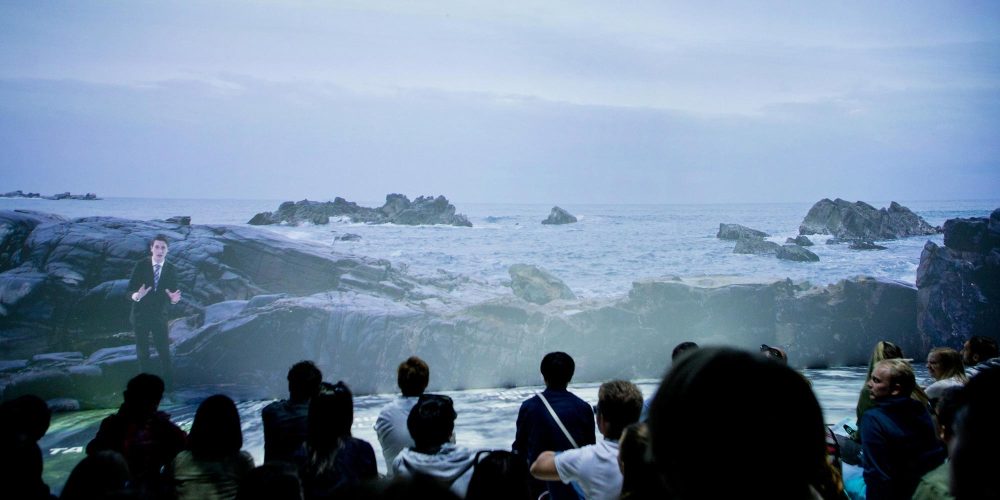
Resonant Media – How 8K can affect perception and emotion
Visual media make the invisible visible; document, capture, make emotional. They capture the moment for eternity.
-
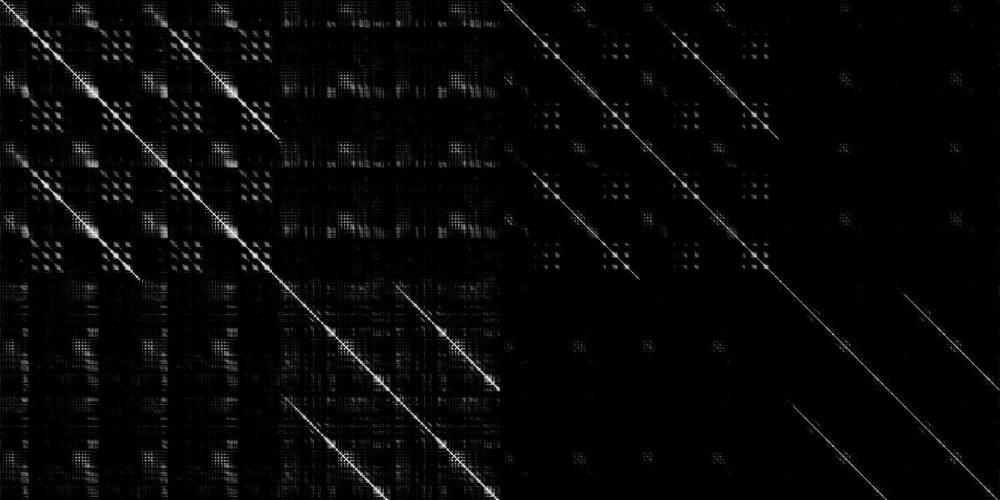
Of rhythms and algorithms
They promise a future full of convenience and are said to surpass us humans in every respect quite soon. Artificial intelligence is already way ahead of us in many areas of competence. Just a few years ago, we thought that it was human creativity alone that distinguished the analogue from the digitally generated work. Because…
-
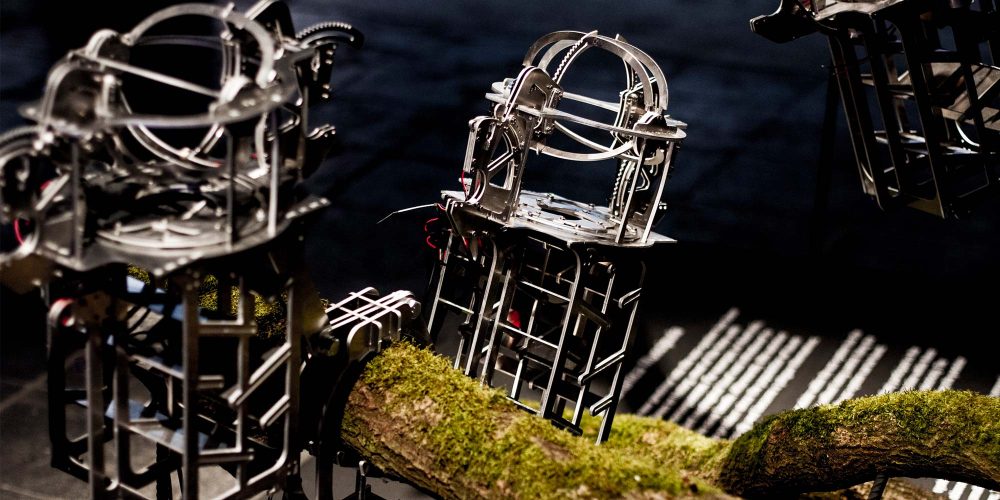
Strolling Between the Disciplines
The JKU campus as a place of encounter and as a place for projects that can only be discovered by strolling through the park and looking attentively into the air. JKU LIT @ Ars Electronica as well as the Garden Exhibition in Kepler’s Garden on the JKU Campus feature playful projects that combine various disciplines.
-
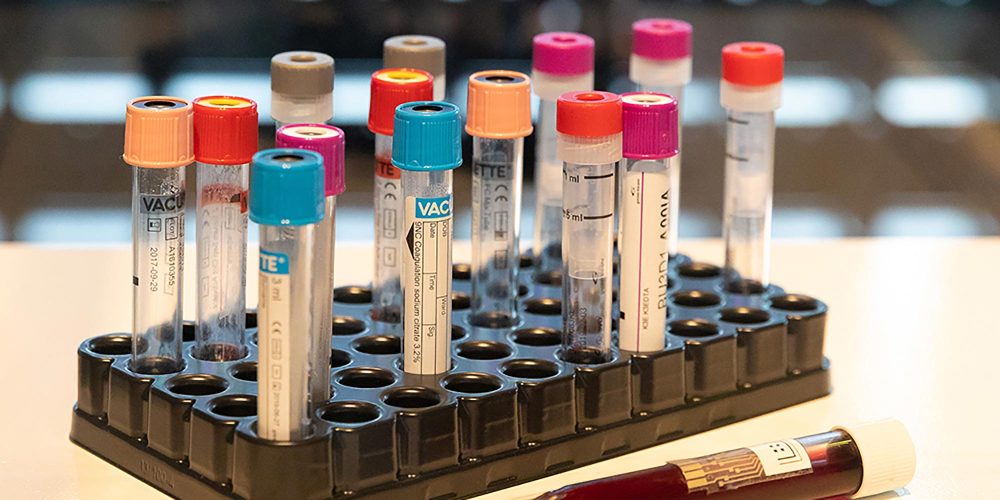
„Look beyond the boundaries of our own organization“
What do a plastics manufacturer and a festival for art, technology and society have in common? A lot, as the long-standing successful cooperation between Greiner AG and Ars Electronica proves.
-
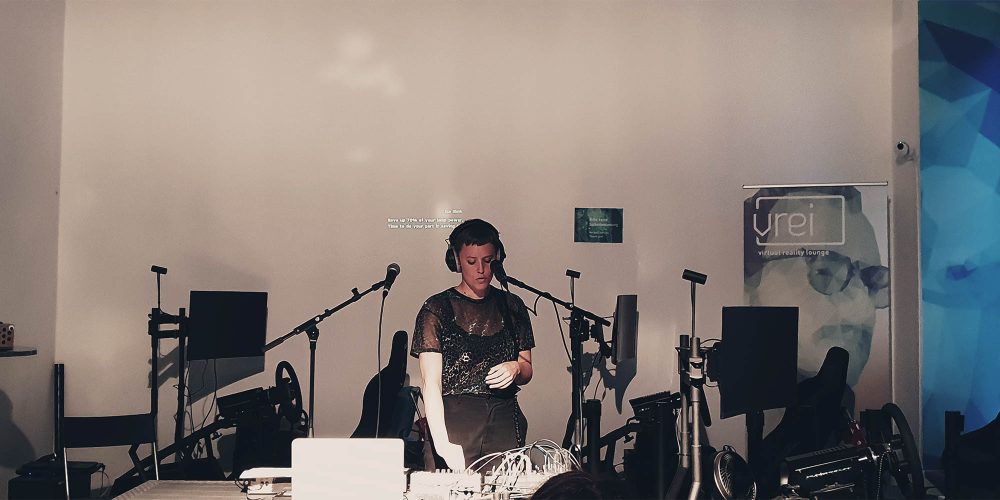
Tattoo Sensors and Code Poems – Future of Sanity?
The Ö1 project “Repairing the Future” raises questions such as: Can we rethink and redesign the future with our innovative ideas? And can we use these ideas to bring new concepts to life that do not exist yet? Definitely!
-
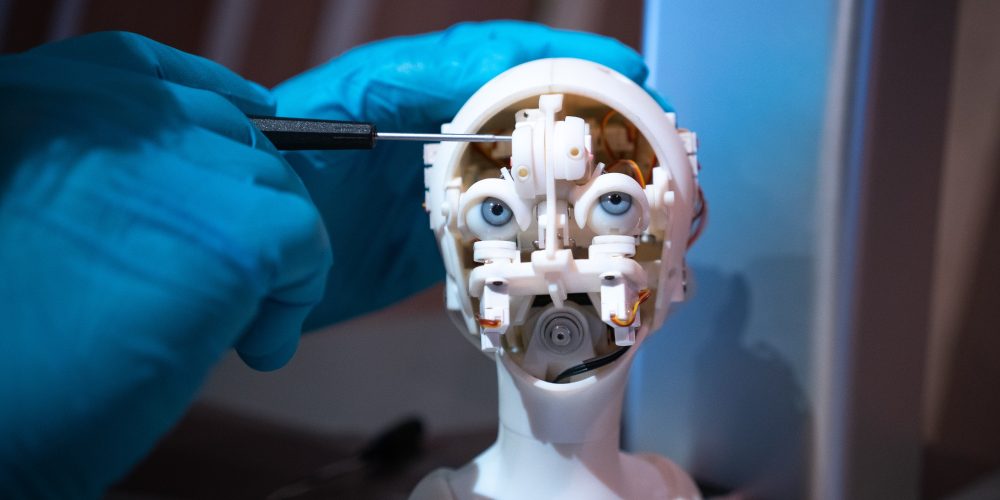
The Museum Never Sleeps
The Ars Electronica Center may be closed at the moment, but it’s not abandoned. We accompanied a colleague during his work at the Museum of the Future, saw a robot from the inside and learned how 3D printing can help in the corona crisis.
-
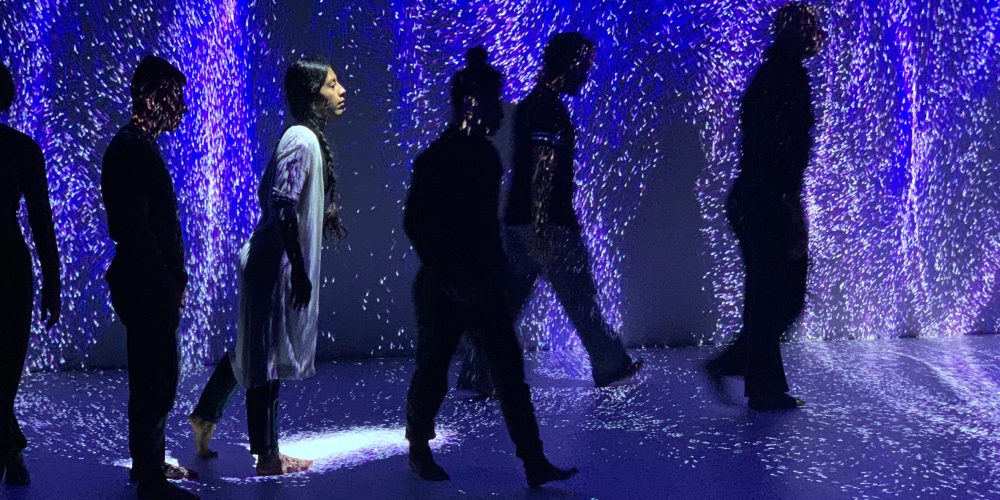
“The Deep Space has a soul”
With fascination we go on a time travel back to the 90s – to the “Cave”, a multimedia room in the recently opened Ars Electronica Center where you could float through walls… A lot has changed since then, both technically and contentwise.
-
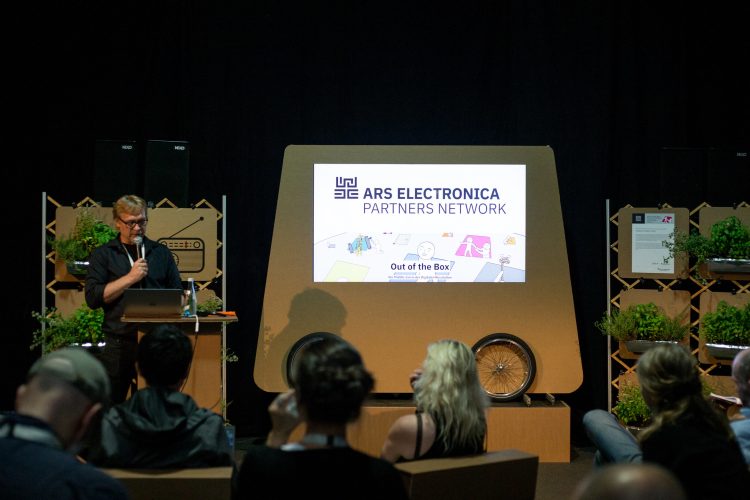
From Theory to Practice: Ars Electronica Research Institutes
Here, academic basic research meets Ars Electronica Futurelab’s artistic/scientific application scenarios: Starting in autumn 2019, the new Ars Electronica Research Institutes will be building a bridge between theory and practice. In this interview, we learned exactly what that looks like.
-
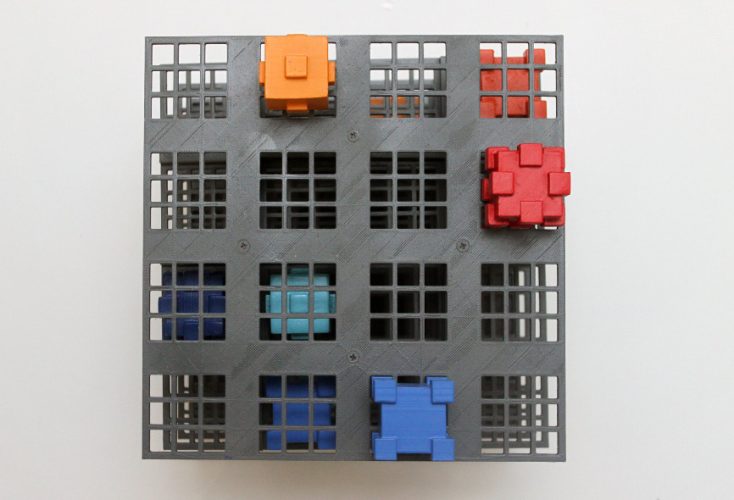
Innovation through interdisciplinarity
How can new paths be taken? Where does the impetus to rethink things come from? How can the mind be guided not to think in the usual way? Who are those who come up with such great things that can actually be used in real life? Well… we might have some answers.
-
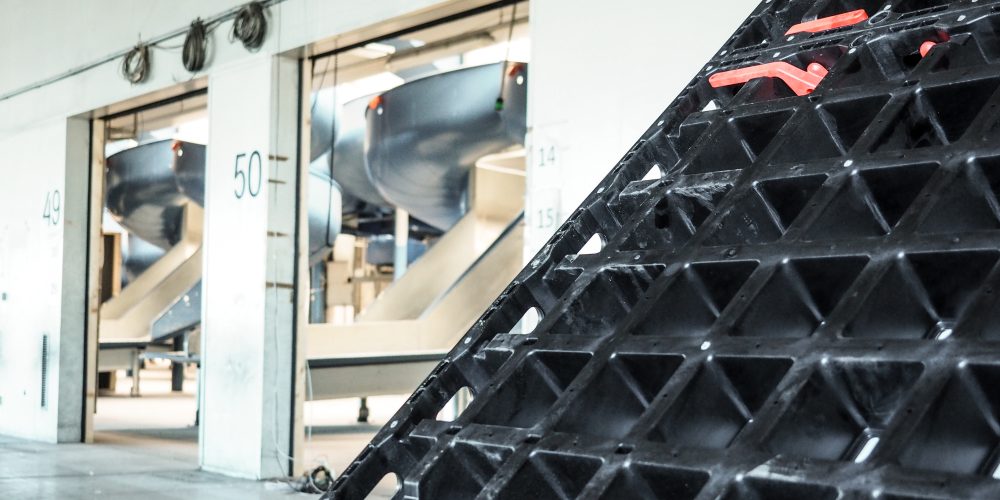
“The PERI elements are like Lego”
To build an 80,000 square metre abandoned industrial area with structures that enable media art. The architects Jürgen Haller and Christoph Weidinger are once again taking on this seemingly unsolvable task this year at the Ars Electronica Festival 2019 in POSTCITY.
-
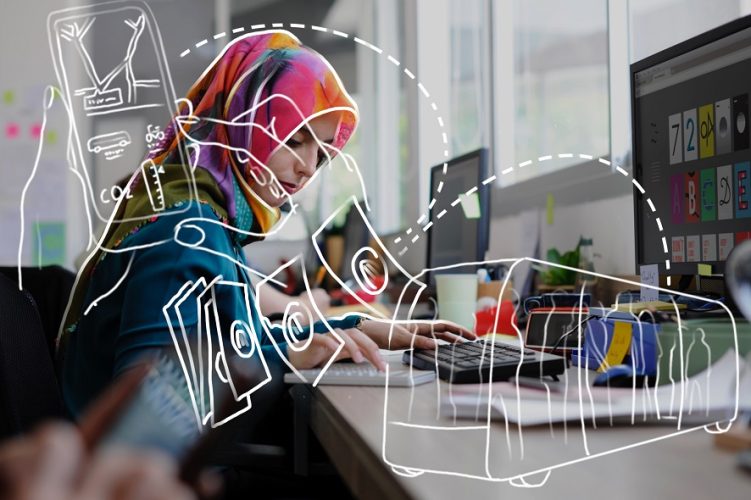
“I train pedestrians”: Transport careers of the future
The Ars Electronica Futurelab has carried out a comprehensive study for the Austrian Road Safety Board regarding how mobility and logistics careers in the transport sector could change by 2050. In this interview, we take a look into the future.
-
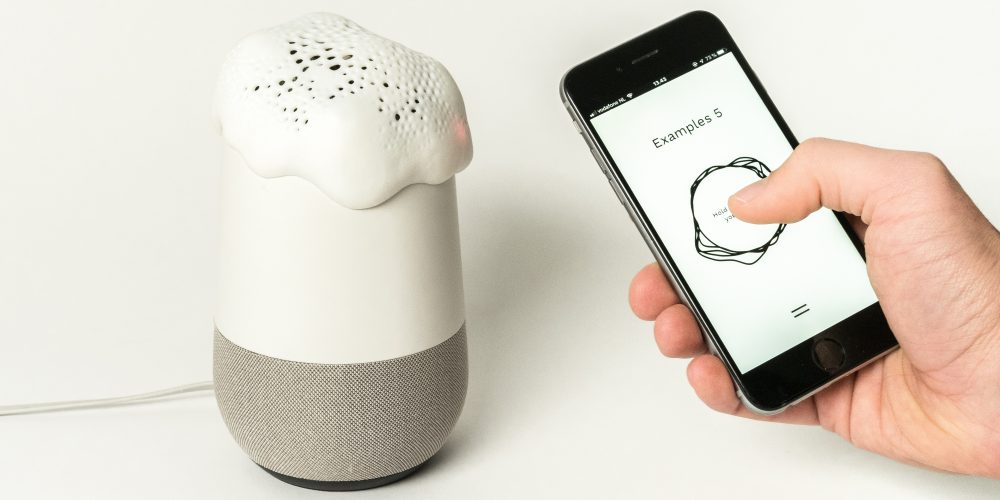
Project Alias: Rediscovering the Private Sphere
With “Project Alias,” Bjørn Karmann and Tore Knudsen of Denmark demonstrated a simple yet effective way to take back control over our own private sphere, which earned them the STARTS Prize of the European Commission. We talked with both of them about privacy, parasitic fungi, and the appropriate narratives.